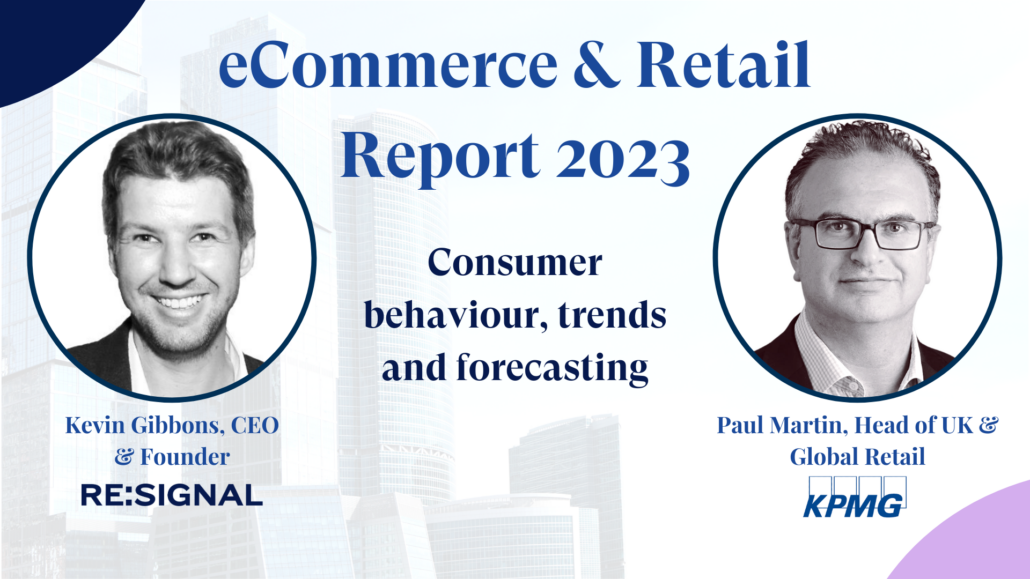An introduction to Google Analytics 4 (GA4) – What are the new features?

The time has come for us to say goodbye to Google Analytics 3 (AKA Universal Analytics) and welcome in the new version, Google Analytics 4 (GA4). The switchover is taking place on July 1st 2023, so we’ve put together an introduction to GA4, so you can feel (at least somewhat) prepared for its arrival.
What is Google Analytics 4?
Let’s start with the basics, what actually is Google Analytics 4?
GA4 is the latest (and fourth) version of Google’s Analytics free service, enabling you to measure traffic, retention, revenue, and engagement across multiple platforms. It focuses more on the holistic, entire lifecycle of a customer journey and tries to provide more data throughout, including after a customer has been acquired. This is where it really excels.
» Read more about: An introduction to Google Analytics 4 (GA4) – What are the new features? »
6+ reasons to read ecommerce news, and where to find it

As an eCommerce retailer (or like me, someone who works with one or more), there are several important reasons to spend some time each day finding out what’s happening in the wider market. Without fail, every morning I will spend around 15 minutes scanning my favourite online eCommerce news sources.
I share anything important with my SEO colleagues, clients and (when I’m feeling particularly generous) industry peers.
Now that I’m in such a good routine, I thought I’d share my reasons for keeping myself and my team up to date with eCommerce news, and I’ll even show you where to find the best online news sources for eCommerce retailers.
Reasons to read eCommerce news
First up, why even bother reading the news?
» Read more about: 6+ reasons to read ecommerce news, and where to find it »
All speaker presentations from the Re:commerce conference 2023

In March 2023 we hosted our first ever eCommerce SEO conference – Re:commerce. We invited the best and brightest minds in eCommerce/Retail growth to come and share their expertise and knowledge with our attendees, through a series of roundtable discussions, and on-stage presentations.
Re:commerce 2023 Speakers:
After the event, we also made all of our speaker presentations from the day free to watch on YouTube, so here’s a brief summary of each Re:commerce talk, and a link to rewatch all the fantastic presentations.
Keynote Speaker: Rory Sutherland –
» Read more about: All speaker presentations from the Re:commerce conference 2023 »
How to find SEO quick-wins in Google Search Console: low CTR% keywords

SEO is a long-won strategy, with gains happening over years. However there are some great quick-wins you can pick off each month that can make a difference really quickly. And the good news is that all you need is Google Search Console and excel to do it.
High-impression keywords with low CTR%
Impressions are a great indicator of visibility. They can also highlight keywords your website is surfacing for and not getting clicks. These keywords mean that search engines have surfaced your content for these keywords, but they need improvements in order to grab clicks.
» Read more about: How to find SEO quick-wins in Google Search Console: low CTR% keywords »
How to approach content strategy for ecommerce

In March 2023 I delivered my first in-person talk at our inaugural conference, Re:commerce. It (like this blog post) was titled “How to approach content strategy for eCommerce” which you can watch in full here:
However, if you prefer the written word, you can read this post. I will be covering everything I talked about on stage at Re:commerce, probably in more accurate detail on account of the nerves when presenting in person!
What makes it a strategy?
A strategy, in this case a content strategy, is a plan of action designed to achieve a long-term or overall aim. It needs to be:
- Founded in research
- Focused on the intended outcome (your goals), split either by short term or long term objectives
- Prioritised to deliver results
» Read more about: How to approach content strategy for ecommerce »
Unleashing the power of social media SEO: top tips for ecommerce brands

Social media and SEO are normally seen as integral parts of any ecommerce business’s Digital Marketing strategy. They are powerful tools for drawing new eyes to a brand’s products as well as for retaining existing customers.
However, SEO and social media marketing are often managed in isolation from one another, with entirely different teams working on each kind of marketing.
This split typically makes sense for operational reasons, but there are many benefits to be gained from incorporating SEO elements within a social media strategy. By doing this, businesses can improve visibility on their chosen social media platforms, drive more traffic to their websites and, ultimately, boost sales.
In this post, we’re going to be exploring what Social SEO is, why e-commerce brands should consider it as part of their wider marketing strategy, and provide some expert tips on how to optimise social media profiles and the content published.
Content
» Read more about: Unleashing the power of social media SEO: top tips for ecommerce brands »
How to prioritise your content strategy by value

Developing a successful content strategy requires more than just creating high-quality content. It’s essential to prioritise the content that will provide the most value to your audience and your business. But with so many types of content to choose from, it can be difficult to know where to start. By focusing on value, you can ensure that your content strategy is optimised for success. In this article, we’ll explore how to prioritise your content strategy by value, including identifying your goals, understanding your audience, and creating a plan that aligns with your business objectives. Whether you’re a seasoned content marketer or just getting started, these tips will help you develop a content strategy that drives results.
What is a Content Strategy?
» Read more about: How to prioritise your content strategy by value »
KPMG: 2023 UK retail sector trends & forecast

At the start of March, Paul Martin (Global Retail Lead & UK Head of Retail at KPMG) kindly joined me for a video interview to talk about the trends of the UK retail sector since we last discussed the topic in early 2022. In this interview, Paul and I looked back at how the UK retail sector fared in 2022, amid a number of unique market challenges. We also discussed the main category movements witnessed so far in 2023, and provided a forecast for the next 12 months of trading!
Watch the full interview below:
Key Takeaways
2022 Recap:
- Following a positive 2021 Christmas period, 2022 started strongly for the UK retail sector, resulting in some of the best trading results KPMG had ever seen for January/ early February!
» Read more about: KPMG: 2023 UK retail sector trends & forecast »
Content writing tips For ecommerce brands

Over time, Google, and other search engines have provided increased visibility for websites that offer their users ‘valuable’ or ‘good’ content. If you have an amazing product, but the content on the website fails to highlight its benefits, you’re not likely to achieve that all important sale. Great content can provide users with the information they need in order to aid them through their customer journey and increase conversions.
So what is ‘good’ content, and how can we go about writing content that search engines, and more importantly, your users will love? In this article we’ve put together some unforgettable tips on how to write great ecommerce content, to take your ecommerce website to that next level.
» Read more about: Content writing tips For ecommerce brands »
A complete guide to optimising your website architecture for SEO

Your website architecture should be an essential part of your technical SEO strategy. Whether you’re working in-house or agency side, the content on your (or your client’s) website must have the foundations of a well-organised categorisation, by topic, in order for the content to be easily discovered, landed on and browsed by both search engines and users.
Moreover, focusing a part of your overall strategy on optimising your website architecture will actually also cover many of your other technical SEO efforts, such as effective internal linking, ease of crawlability and indexation by search engines and accurate keyword targeting. To name a few. So you’re actually covering a lot of your bases with just a single approach. Therefore, this SEO investment should most certainly not be overlooked.
It is for this reason that we’ve prepared this guide on how to optimise your website architecture for SEO. But before we get into the important steps and best practices, we need to first understand a few things, such as what a website architecture is and how it benefits a user’s experience on your site.
» Read more about: A complete guide to optimising your website architecture for SEO »




